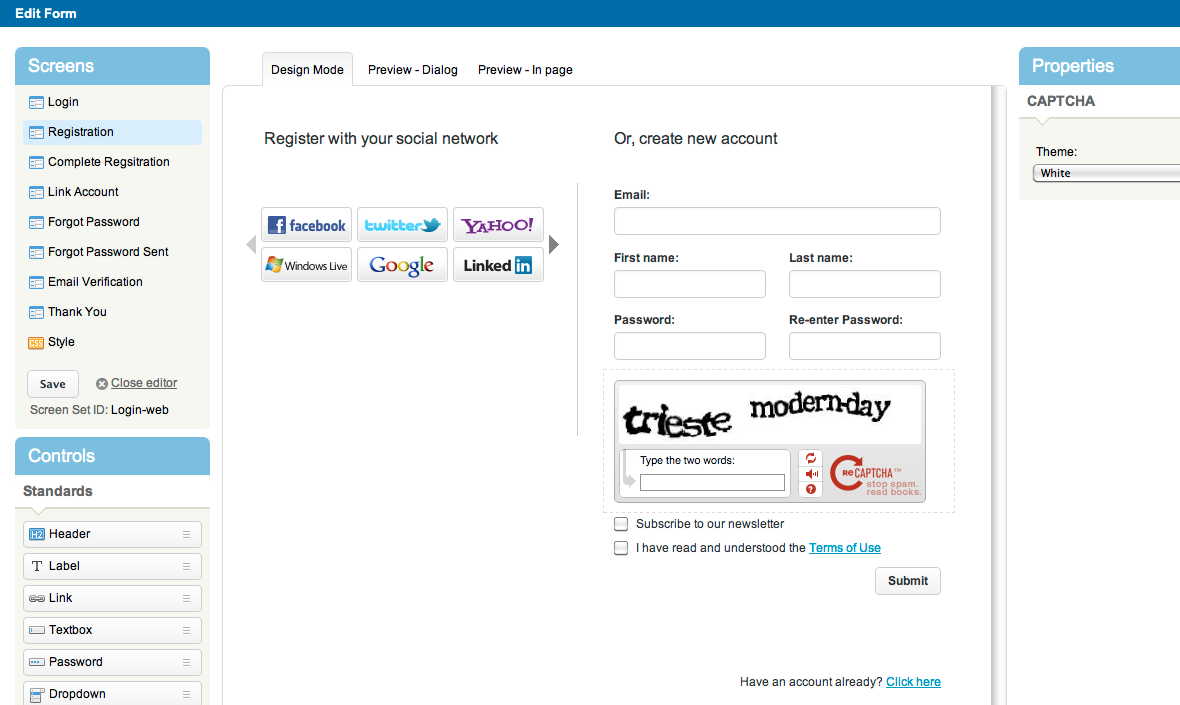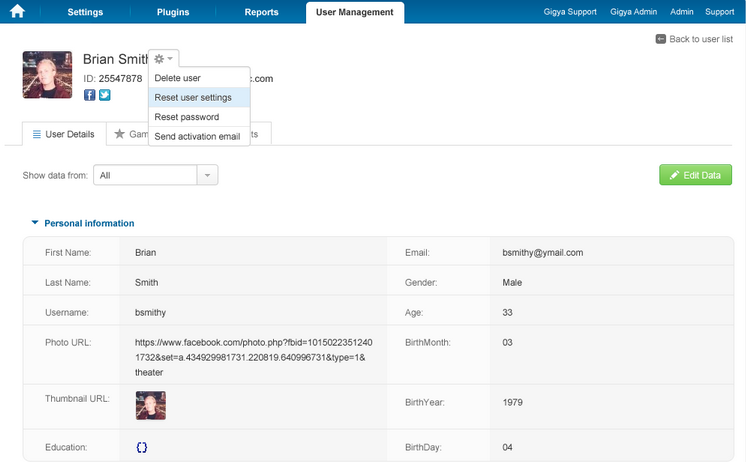Businesses understand the importance of implementing a social strategy in the Facebook Era — and not just because it’s cool, but because it can have a real effect on user engagement. Just ask Salesforce, which recently acquired Buddy Media for $643 million or Oracle, who followed suit by snatching up Vitrue for $300 million. Over the last five or so years, we’ve more or less seen the maturation of social media management (and marketing), but Gigya is one of a group of companies that believes social infrastructure is finally emerging as the next big business in the Social World.
Essentially, Gigya offers social infrastructure-as-a-service, or an all-in-one cloudware solution that gives businesses the tools they need to make their sites social without having to build it themselves. Today, the startup is making a couple of big additions and changes to its social infrastructure, launching an overhauled user management platform that now allows sites to go further in capturing and storing traditional and permission-based social data.
What does that mean? The startup has been beefing up its social infrastructure with social identity management and social gamification suites aimed at letting businesses offer registration through social login and boosting their marketing initiatives with social identity data. Though these new products have taken them into Janrain and Badgeville territory, the company has been on a roll lately and is now working with 600 clients, including Verizon, Pepsi and ABC.
Today, Gigya is using that momentum to launch an overhauled user management platform that includes two new products — “Registration-as-a-Service” and “Identity Access.” The first of the two allows sites to create registration pages, including traditional registration and social login within a few minutes. Businesses have needed to build custom registration systems, but now even those without technical backgrounds can quickly create a registration page with social login.
The product comes with an admin panel that lets site operators customize registration, login and profile management UIs. User data captured by registration can then be stored in the company’s “identity storage,” a database designed to house traditional and social user data.
The identity storage component brings up the second new piece of Gigya’s social infrastructure, Identity Access, which gives marketers the ability to access user profile and site activity data. Gigya collects information on a site’s users through registration, plug-ins or gamification and stores it when users explicitly give permission to access their social profiles. Once they do, marketers can access identity data like name, email address, interests, activities, likes, friends, etc. That info can then be exported into a company’s associated marketing platforms for targeted campaigns and, well, you know the rest.
As an end user, there’s something a little creepy about all this — a large database of our social identities used to inform third-party marketing systems and target “better,” more personalized ads. Not that ads targeted based on my Facebook data are going to get me buy a product, but that’s for another day. However, end users do have to grant permission to Gigya to access their profiles, so it is opt-in, and, really, Gigya is doing with this what Facebook wishes it could do but can’t for a number of good reasons. Gigya is essentially offering Facebook Connect (and Twitter, LinkedIn, etc. auth) as well as social network-based commenting and gamification as a service for enterprise.
This is huge for big companies, like Verizon, which are using the company’s social infrastructure to create a behavior feedback loop and boost on-site engagement. Gigya’s CEO Patrick Salyer tells us that users who log-in via social network (like Facebook, etc.) spend an average of 30 percent more time on-site and view 15 percent more pages versus traditional login. Registration-as-a-service lets companies easily implement social (or traditional login) without building it internally.
“Most businesses are building their registration systems from scratch,” the CEO says. “Registration-as-a-service is meant to break down the barriers between IT and marketing by giving marketers the ability to understand their users and enabling them quick access to actionable data.”
At this point, Gigya’s sales have tripled YOY by going after enterprise with product suites that start at $1,600/month (that’s just for Social Login funcationality). So, Gigya isn’t going after the long-tail, is focusing on the big fish (enterprise) with a platform that generally prices out smaller businesses. It’s a lucrative market and has plenty of opportunity to sustain it going forward, but I’d love to see the company begin offering its social infrastructure in some kind of micro suite to startups and SMBs — those who could arguable benefit the most from its services. The margins may not be quite as juicy, but it would gain a lot of points for stepping out into the fray.
For more, find Gigya at home here.


